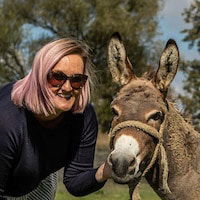Planning a trip to Bulgaria? Well, let me share a little secret—I’m head over heels for this captivating country. Having been fortunate enough to explore its wonders several times in various seasons, I’ve come to realize that Bulgaria is a treasure trove of experiences year-round.
This guide is your ticket to unlocking the mysteries of Bulgaria’s weather, understanding the distinct seasons, and tapping into the pulse of its lively festivals. Whether you’re a sun worshipper, a snow aficionado, or simply someone in search of unforgettable cultural celebrations, I’ve got you covered.
Join me as we embark on a journey through Bulgaria’s diverse seasons and festivals, ensuring your visit is nothing short of extraordinary.
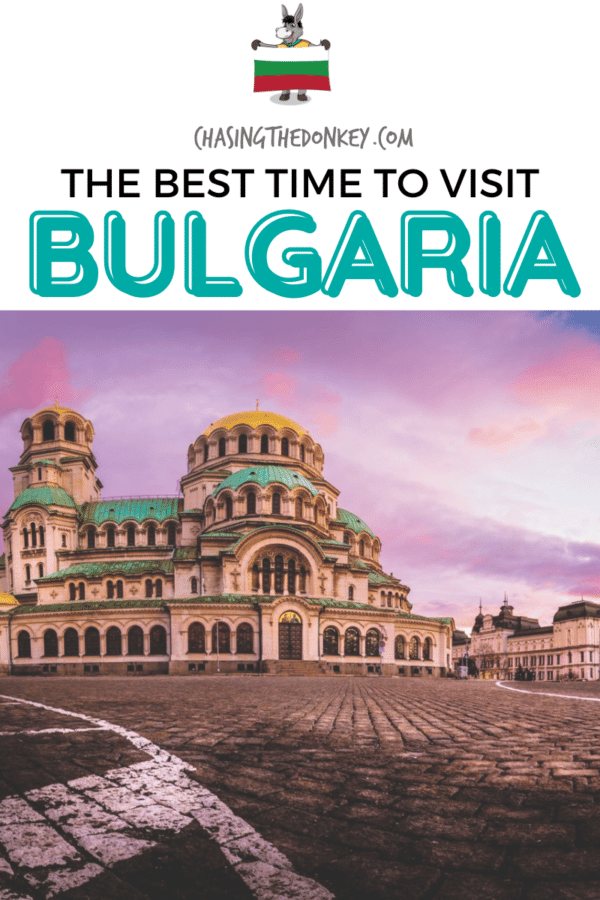
Bulgaria is a popular tourist destination. Its famous Black Sea coastlines, medieval towns, food, wine, and history bring people in from all parts of the world. Bulgaria’s inland location and diverse topography bring about four distinct seasons that can affect travel plans.
While deciding the best time to visit Bulgaria, you have to consider a couple of critical factors, including weather conditions, tourist seasons, and major festivals.
Bulgaria has a continental climate with frigid winters and warm, sunny summers. Pay attention to monthly temperature and precipitation averages when trip planning. Summer is the peak tourist season, with bigger crowds and higher prices.
Visit in shoulder seasons for smaller crowds and cheaper rates. Bulgaria hosts amazing cultural festivals and events year-round that are worth scheduling trips around.
So, here is my month-by-month guide to make your Bulgarian getaway decisions easy!
Skip Ahead To My Advice Here!
Bulgaria Season & Weather
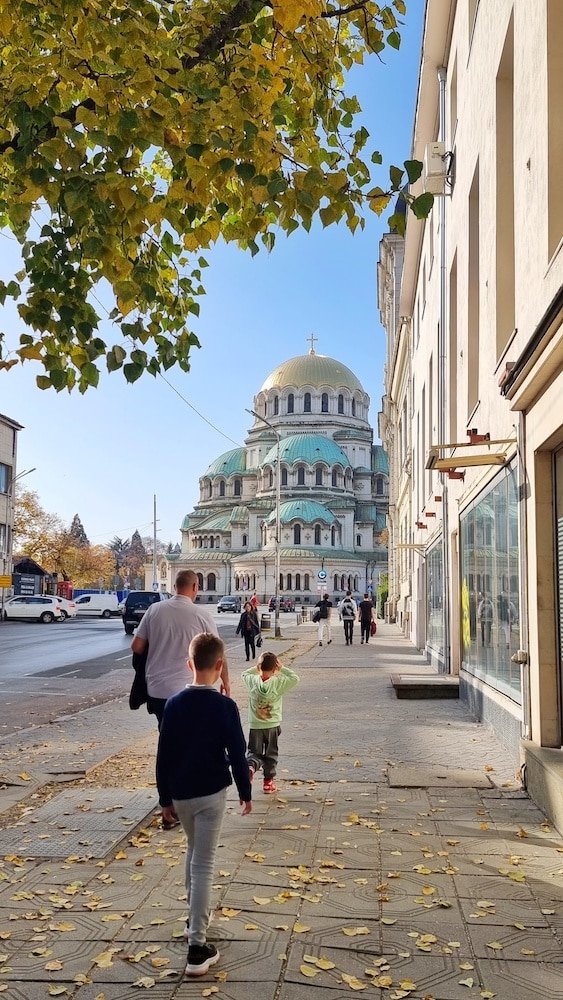
In Bulgaria, you’ll get it all, from freezing winters to warm summers. Bulgarian climate is divided into two regions, with the north having a continental climate and the south a Mediterranean climate.
Bulgaria has four specific seasons: summer, autumn, winter, and spring.
While Bulgaria is generally sunny with 2,200 to 2,500 hours of annual sunlight, it can rain year-round, and thunderstorms are common in summer. In winter, they have heavy snowfall from December to March.
The temperatures in the mountains and southern coastal regions are different because of the terrain.
Summer: Bulgaria is a popular tourist destination in summer due to all of the outdoor activities, beaches, and historical sights. The summers have long, hot, and dry days from June to August.
Temperatures going over 30°C are typical in summer with averages of 75°F/24°C. Sofia summer temperatures are around 27°C on average.
June has the highest rainfall of the year.
Winter: Heavy winter snowfall covers Bulgaria, attracting winter tourism for skiing. The coastal resorts close for the winter season, and the ski resorts open. The winter temperatures from December to February have an average of 32°F/0°C.
The winter in Sofia goes as low as temperatures around -4°C.
Spring: Spring has pleasant temperatures, with the Mediterranean climate influence seen along the coast.
Autumn: September still offers good weather, and from October, the temperatures drop dramatically.
Average Monthly Rainfall Temperatures, Climate & Weather In Bulgaria
Here are the key weather conditions and travel considerations for each month in Bulgaria:
| Month | Avg High (°C/°F) | Avg Low (°C/°F) | Avg Rainy Days | Avg Sunshine Hours | Notes |
|---|---|---|---|---|---|
| January | 6°C/42.8°F | -1°C/30.2°F | 6 days | 3 hours | Coldest month, with snow in the mountains and inland |
| February | 10°C/50.0°F | 2°C/35.6°F | 9 days | 5-6 hours | Still cold, chance of snow until mid-month |
| March | 12°C/53.6°F | 6°C/42.8°F | 7 days | 6 hours | Weather warming, rainfall highest of year |
| April | 20°C/68.0°F | 10°C/50.0°F | 5-8 days | 7-8 hours | Spring blooms, mild weather inland |
| May | 25°C/77.0°F | 15°C/59.0°F | 8 days | 8 hours | Warm and sunny, possible showers |
| June | 26°C/78.8°F | 16°C/60.8°F | 13 days | 10 hours | Beaches open, long sunny days |
| July | 28°C/82.4°F | 18°C/64.4°F | 9 days | 11 hours | Hottest month, the peak of summer |
| August | 28°C/82.4°F | 17°C/62.6°F | 8 days | 10 hours | Hot summer weather continues |
| September | 25°C/77.0°F | 14°C/57.2°F | 9 days | 8 hours | Cooler temps, drier weather |
| October | 19°C/66.2°F | 12°C/53.6°F | 9 days | 6 hours | Fall foliage emerges |
| November | 13°C/55.4°F | 6°C/42.8°F | 12 days | 3 hours | Colder w/ rain and snow in mountains |
| December | 8°C/46.4°F | 2°C/35.6°F | 13 days | 2 hours | Cold winter weather sets in |
Brands We Use And Trust
Best Time To Visit Sofia
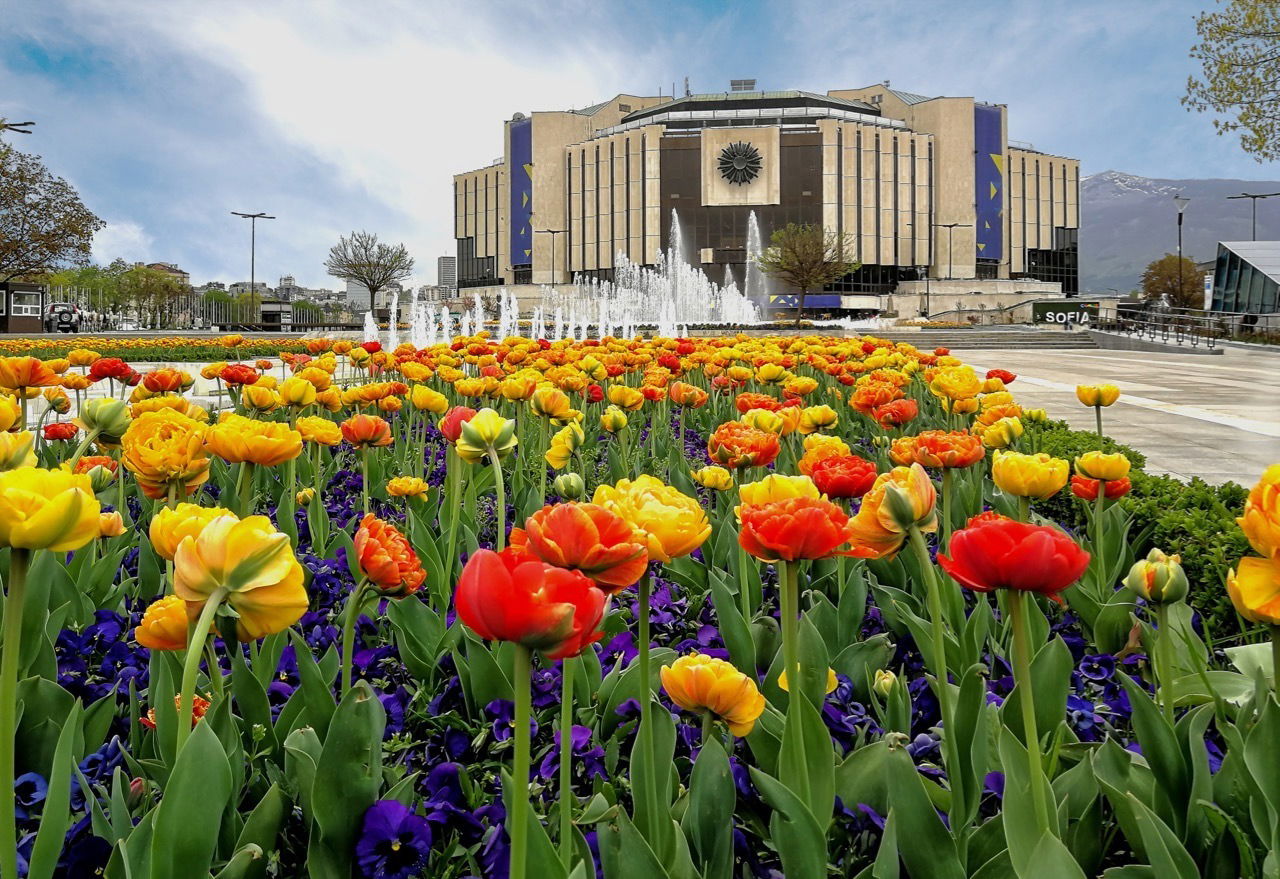
Sofia, the capital of Bulgaria, is one of the most visited cities in Bulgaria when it comes to its historical sites and architecture. Both Mediterranean and continental weather patterns influence Sofia’s climate.
July is one of the best times to visit Sofia. July has ideal weather, with temperature highs around 26°C (78°F). July also has 13 sunny days on average and has a low chance of rain with only 16 rainy days. The evenings in July are often cool, with the temperatures at around 12°C (53°F). So, bring a light jacket!
August also has excellent weather but is slightly warmer than July. The temperature ranges between 12°C (54°F) and 27°C (80°F). August has less rain than July, with only 9 rainy days. With lots of sunshine, August in Sofia gets 19 sunny days on average. September is still pleasant at temperatures as high as 22°C (71°F). The nights are cooler in September, with around 10°C (49°F).
Spring has comfortable temperatures, especially in May, making it ideal for sightseeing. Summer brings the peak tourism months to Sofia from June to August. Early fall, which is in September and October, is much less crowded after the summer tourist rush—Sofia’s busy cultural calendar peaks in late spring and summer with concerts and events.
Winters are very cold in Sofia from December through February. Most years, Sofia is covered in snow from December to March. June sees the highest rainfall, so it is not ideal for visiting Sofia. The months of November through March are classified as “very bad weather” for visiting Sofia.
Overall, July provides the best combination of pleasant weather, lower prices, and lots of tourists.
Best Time To Visit Bulgaria – Activities In Bulgaria
Sunshine For Beaches & Swimming
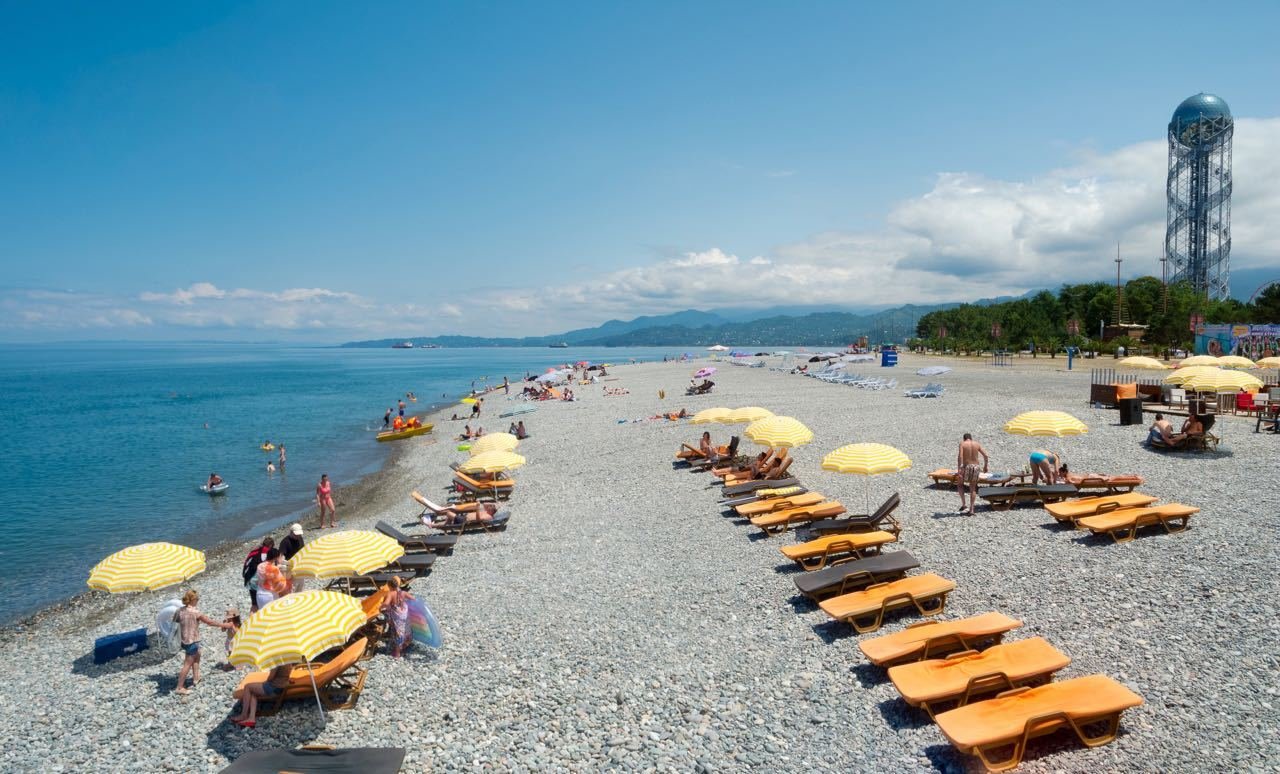
The best time to visit the beaches and swim is during the high and shoulder season.
The high season in Bulgaria is between May and September. During the high season, go to the Black Sea coast and other beaches when the average water temperatures reach peak levels of 17°C to 26°C. The weather is hot and sunny, while the water is just warm enough for swimming. All beach resorts open and run at full capacity during these months, making accommodation a bit pricey.
Now, the shoulder season is in late May and early October when the peak summer season winds down. During this time, the weather is milder, the crowd is smaller, and the hotel rates are cheaper along the coast. The water temperature drops to 15°C – 20°C on average. While the water is a bit cold, short swims are still comfortable.
Hiking & Trekking Tourist Season
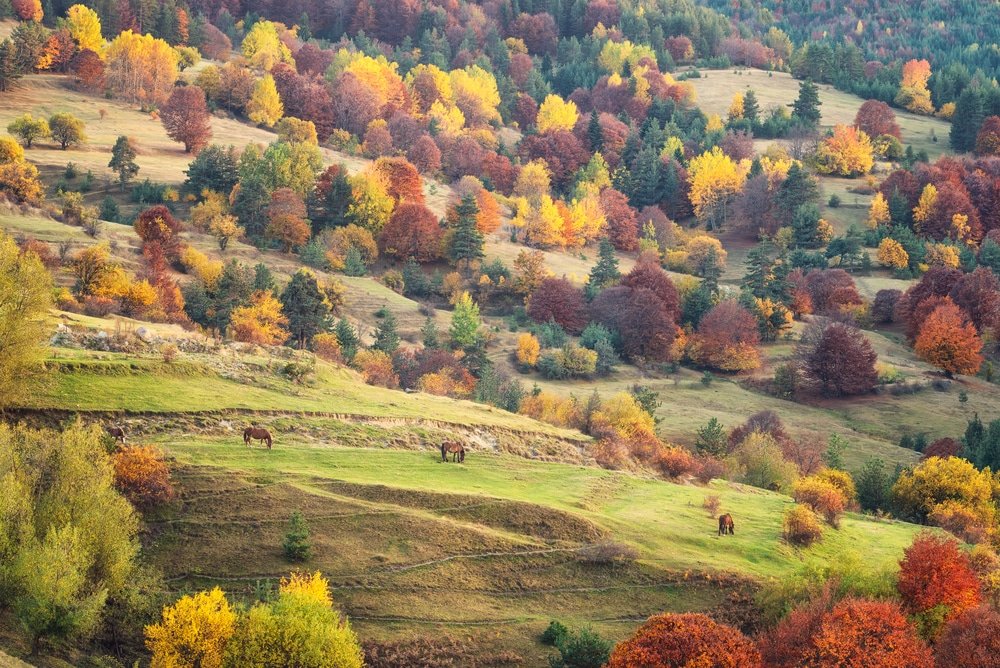
If you are a hiker, there are a few great times to visit Bulgaria.
From June through September, the days are longer. The weather is dry, and the temperature is hot. The conditions are pleasant overall, and if that is your scene, summer is the best time to visit Bulgaria.
From September to November, the Autumn season is excellent for hiking and trekking. Still, you need to be prepared for changing weather conditions in the high mountain ranges like Rila, Pirin, and the Stara Planina.
September still feels like summer, but there can be sudden severe weather in the mountains. The nights can drop below-freezing temperatures with rain, snow, frost, and strong winds. Daytime temperatures vary from 5°C to 25°C.
In October, there’ll be fall foliage, cold nights above 2000m, occasional snow, and daytime temperatures from 0°C to 20°C. In November, winter begins with permanent snow above 2400m, with cold days and nights and varying weather from sunny to snowy, with temperatures below zero during the day at altitude.
While visiting for hiking or trekking, make sure to carry the necessary equipment and take risk precautions. Having a backup plan for severe weather will help ensure your trip goes smoothly.
Best Time To Go For Winter Sports & Skiing
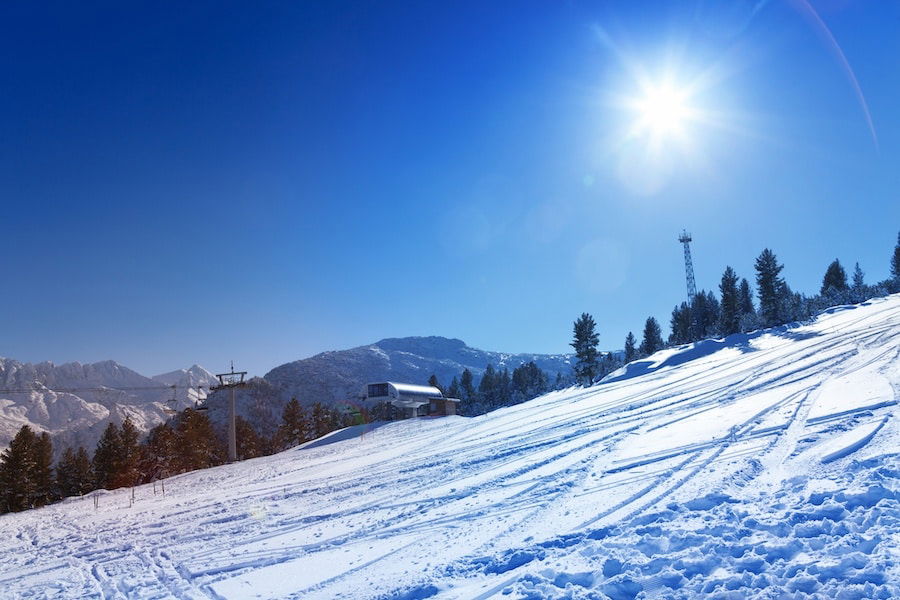
The peak ski season runs from mid-December through late March when slopes and trails are in the best condition. Bulgaria has excellent ski resorts in the mountain areas, such as Rhodopes, Rila, etc, that offer affordable ski holidays.
Due to the high-altitude skiing and good snowmaking coverage, the skiing conditions are generally favorable throughout the season. Christmas and New Year weeks are most popular and crowded with a festive atmosphere.
The coldest month of the year is January. with temperatures between -5 °C and- 10 °C. The most snowfall also occurs during this month.
If milder temperatures and a bit warmer weather are your choice, visit in March when the weather is between 4°C and 11°C on average. Since March is towards the end of the season,
You’ll probably find cheaper deals for a ski holiday.
Some popular ski resort picks are Bansko, Borovets, and Pamporovo, which receive 5-7 meters of snowfall annually. Most runs are open by early January and remain operational until April, when the snow starts melting.
Best Time To Travel For City Sightseeing & Cultural Events
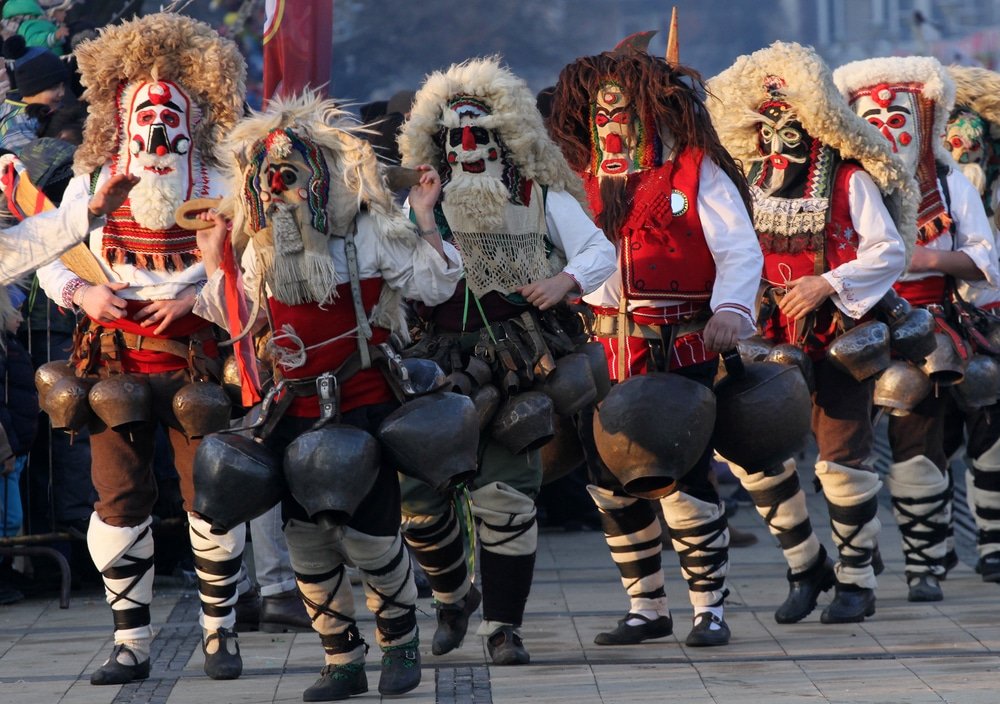
Spring, which is from March to May, and fall, which is from September to November, are the best times for sightseeing in Bulgaria’s historic cities like Sofia, Plovdiv, Varna, etc. The weather is milder, and the tourist crowds are not as large.
Summers are pretty hot, making long walks for sightseeing less comfortable. During the peak months of July and August, locals head out of town on holiday.
There are a lot of places to visit in Bulgaria, especially for sightseeing and cultural events.
Sofia, the capital and largest city of Bulgaria, is the best place to visit to dig up some history. The city holds the Alexander Nevsky Cathedral and the National Archaeological Museum. Apart from Sofia, you can visit other sites like the Rila Monastery, which has UNESCO status, Burgas, the annual sand festival, KvARTal, Sofia Film Fest, Surva Carnival, etc.
Destination Guide For Festivals, Events & National Holidays
Bulgaria has amazing cultural festivals and celebrations year-round. Here are some top events by month that are worth scheduling trips around:
- January: Surva Carnival (Festival of the Masquerade Games), Pernik
- February: Baba Marta (Grandmother March) Festival welcoming spring
- March: Plovdiv International Film Festival
- June: Nestinari Festival, Varna Summer International Theater Festival, August: Opera Open Festival, Plovdiv
- July: Hills of Rock, Plovdiv, International Folklore Festival, Veliko Tarnovo
- August: International Bagpipe Contest, Gela, International Jazz Festival, Bansko
- September: KvARTal Festival, Sofia
- October: Sofia Film Fest, Cinelibri, Sofia
- November: Day of Liberation from Ottoman Rule
- December: Christmas and New Year’s Celebrations related to city markets and festivities
Move This Adventure To Your Inbox & Get An Instant Freebie

No spam. Unsubscribe at any time.
Bulgarian Cuisine
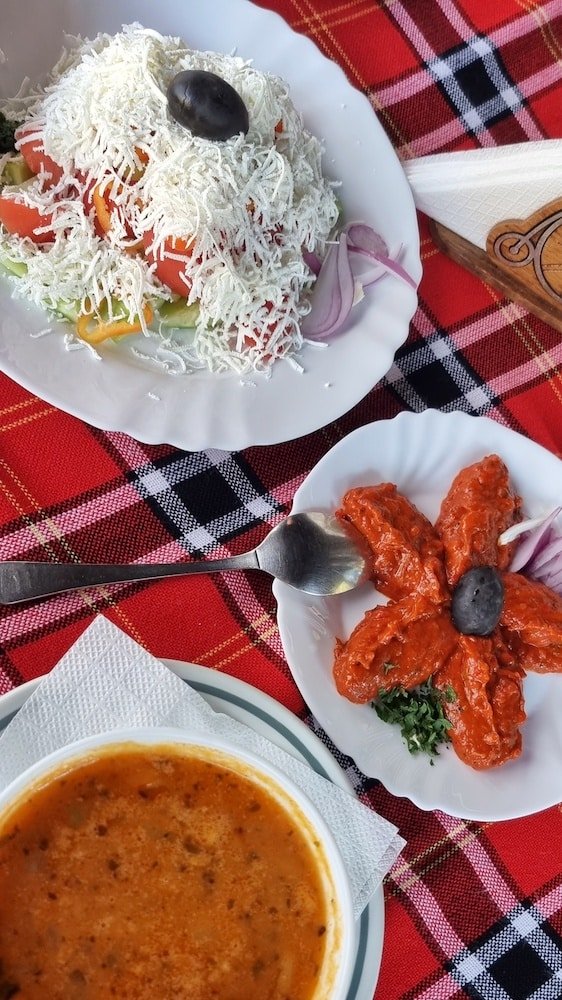
Bulgarian Cuisine is influenced by Greek, Turkish, and other Balkan cuisines due to its geographical location. The cuisine relies heavily on fresh vegetables and dairy products like yogurt and cheese. Meat, especially pork, chicken, and lamb, is also important to their cuisine.
Some of their most popular dishes include grilled meats such as kebapche and kyufte, mixed grills such as Meshana skara, etc. Their cuisine is also known for rich stuffed vegetables, including peppers, tomatoes, cabbage leaves, etc. Soups such as tarator and shkembe feature yogurt, cucumbers, tripe, etc. Their salads include chopped vegetables and cheese. A popular salad in Bulgaria is shopska salata.
Their cuisine has moussaka’s meat and potato version, distinct from the Greek style. The famous kiselo mlyako yogurt in Bulgaria is considered very healthy, with excellent probiotics.
When it comes to pastry dishes, banitsa with phyllo dough and cheese are iconic. Desserts are mostly made of fruit, nuts, and filo dough. A popular one is the baklava. In the country of Bulgaria, trying the local wine, especially from Melnik, is a must. Wine production dates back to Thracians, with many fine varieties produced today.
Savoury, cumin, paprika, mint, etc, are a few of the most used spices. Their cuisine reflects community and family, with their dishes made for sharing. Traditional Bulgarian restaurants offer hearty and rustic meals showcasing the Bulgarian heritage.
Time To Go To Bulgaria Conclusion
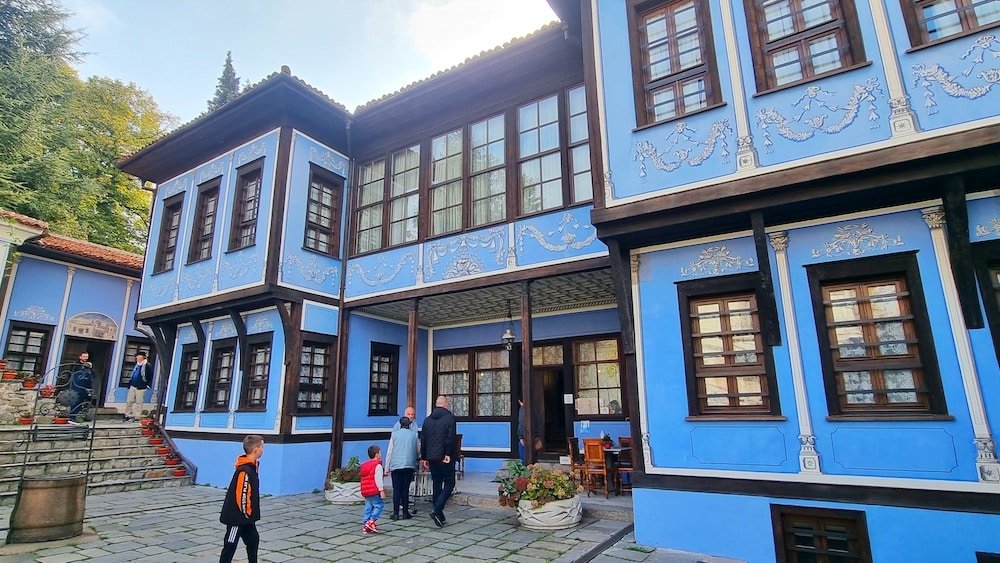
The ideal time to plan your getaway to Bulgaria depends greatly on your personal preferences, must-see sights, budget, and crowd tolerance. However, a personal favorite is during December’s snowy ski season. Moreover, make sure to explore their cuisine, including dishes like Milinki, Banista, Tutmanik, and more.
Whatever your preferences are, take a look at the weather stats, events, etc., before traveling. Always have a backup plan just in case the weather gets uncooperative! Have a perfect time in Bulgaria, a beautiful country with much to offer!

